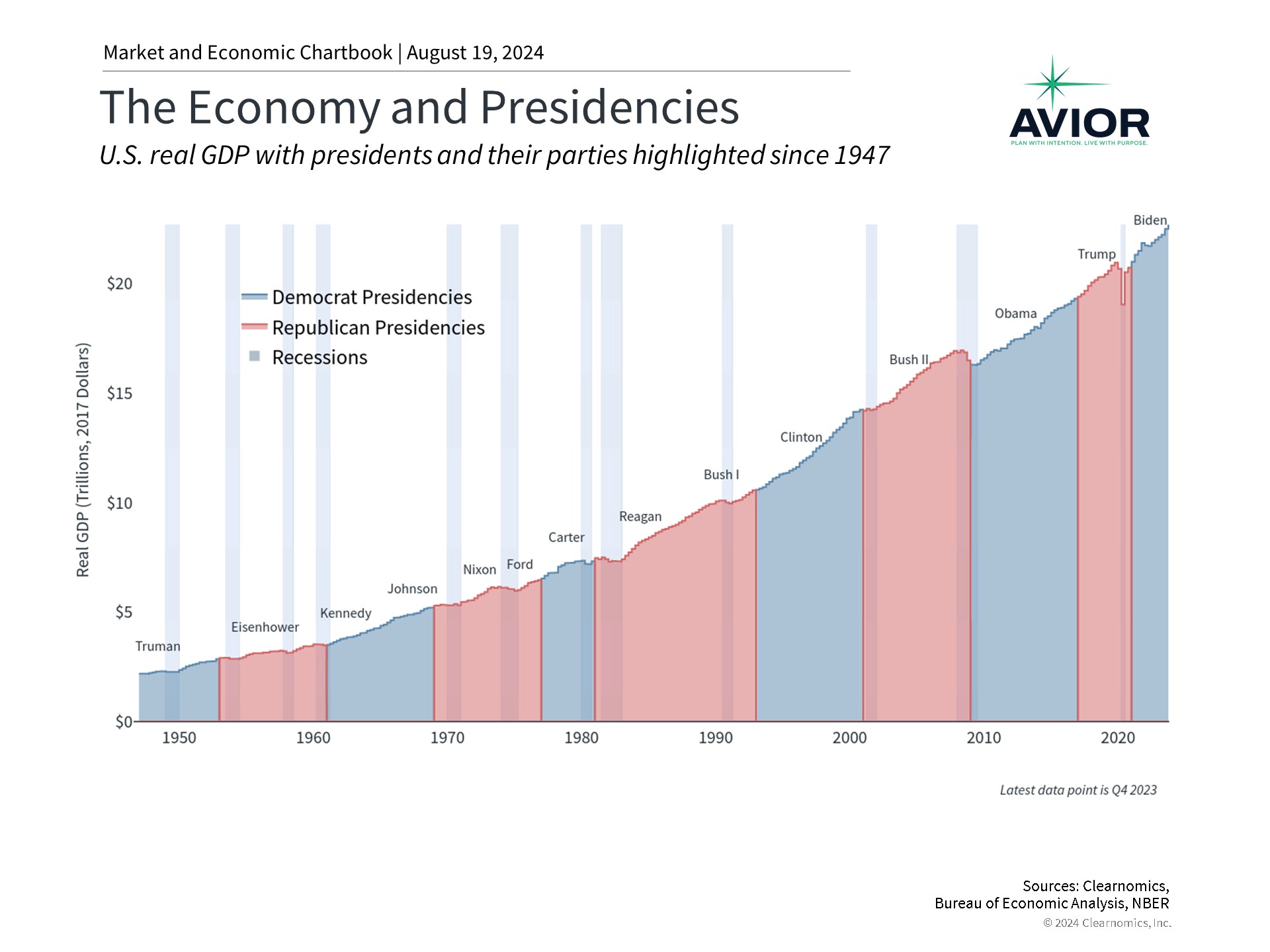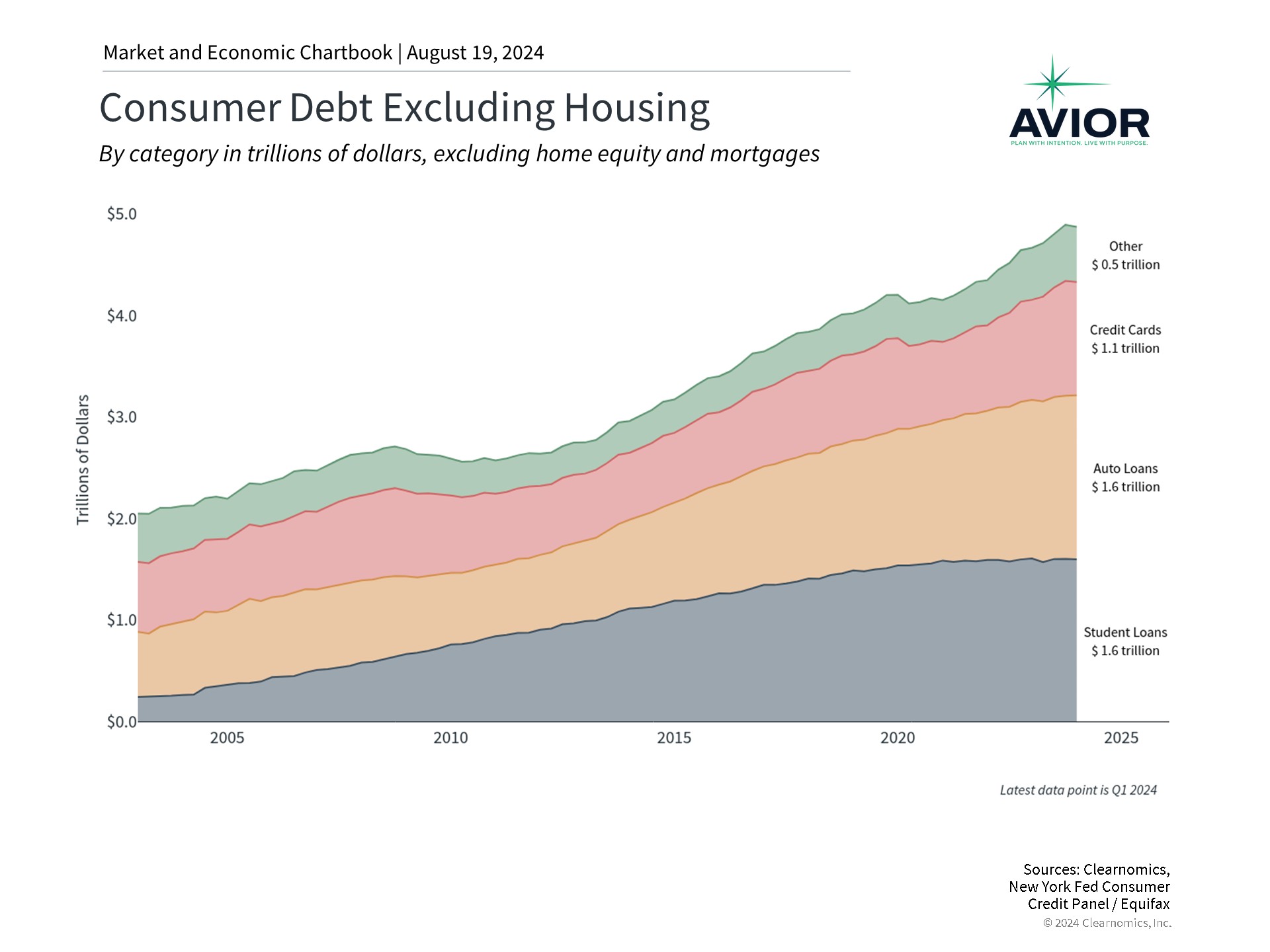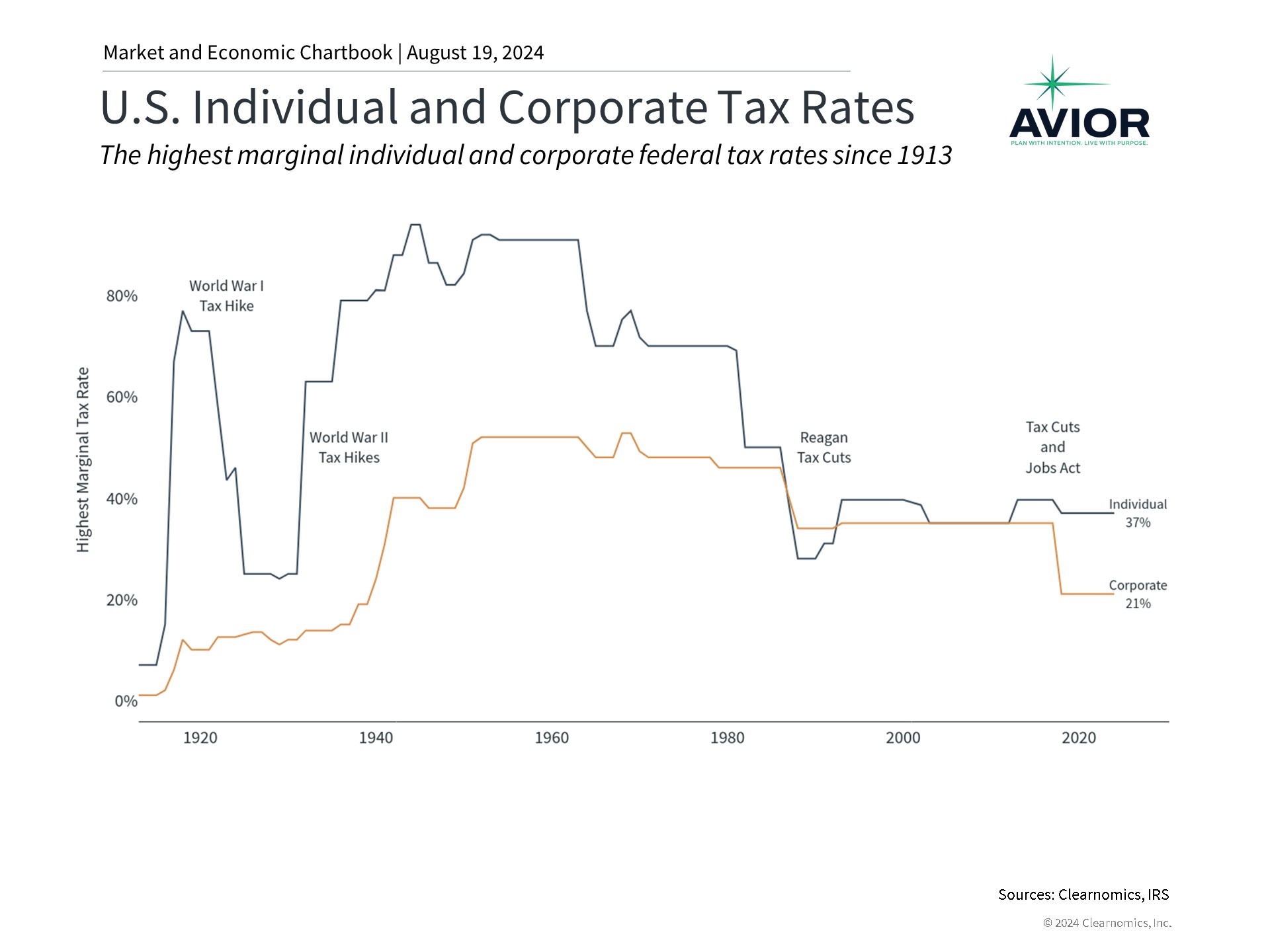How Presidential Elections and Economic Policy Impact Investors
With the presidential election just two and a half months away, the candidates’ economic policy platforms are only now beginning to take shape. This late unveiling has some investors concerned about how each policy platform might impact the economy and financial markets. As with all elections, the perceived stakes are high, and with greater political polarization in recent years, emotions are running as hot as ever. In this challenging environment, what do investors need to know in the months ahead to prevent their political concerns from negatively affecting their financial plans?
Political issues undoubtedly play an important role in our daily lives, influencing everything from our tax bills to industry regulations. This heightens the importance of elections, since they are how we can express our preferences for a range of social and economic policies. However, it’s important for investors to vote at the ballot box and not with their portfolios. History emphasizes the importance of separating our personal views from our investment and financial decisions.
The economy is in the spotlight leading up to the election

When viewed through a long-term investment lens, presidents often receive too much credit (and blame) for economic conditions. The true drivers of long-term economic performance are the underlying business cycle trends, which are far more powerful and long-lasting than any single administration’s policies. And, over time, business cycles are what drive investment returns and wealth creation.
This is highlighted by the accompanying chart which shows the level of the country’s gross domestic product, a measure of the size of the economy, since World War II. There have been a dozen business cycles and recessions over this period, including the recent pandemic crash, the 2008 global financial crisis, and the 2000 dot-com bust.
These were the result of both external shocks to the economy as well as trends that had little to do with who was in control of the White House. The globalization, information technology revolution, and expansion of financial markets that took place over these years played far greater roles. The overall pattern is clear: the economy has grown steadily over the past eight decades across both political parties.
Consumers are the central focus this election season

As the candidates’ policy platforms continue to unfold, especially with the Democratic National Convention taking place, understanding this bigger-picture context is important. This is not to say that economic policies do not matter, just that investors should not overreact to the results of any individual election or a specific policy.
In fact, it’s often the economy that impacts elections, and not the other way around. This is especially true because the two candidates’ platforms are naturally backward-looking, focusing on what households have experienced over the past few years. For instance, according to a recent poll by The Economist/YouGov, 24% of Americans rank “inflation/prices” as the most important issue, followed by “jobs and the economy” at 13%. This is not surprising given recent market and economic swings due to inflation, interest rates, and Fed policy.
Even though inflation pressures have eased significantly and the economy is strong by many measures, very few consumers feel confident in the economy or their financial situations. This is largely because consumer debt has risen dramatically, as shown in the chart above. Total non-mortgage consumer debt has more than doubled in the last 20 years across Democratic and Republican presidencies. Credit card debt is at record levels while student loan and auto loan balances are increasing at their fastest rates since 2003.
This is why President Trump and Vice President Harris have both built their economic platforms around consumers. Despite the many social differences between the two candidates, there are broad similarities between their economic proposals. Both focus on the cost of living across grocery bills – including the cost of bacon, bread, and ground beef – prescription medication, and housing. In recent weeks, both candidates have also agreed on expanding child tax credits and not taxing tips. Politically, it makes sense that both candidates are speaking to those who feel “left behind” given the economic turmoil of the past few years.
Taxes and the deficit are also in focus

As expected, there are also differences in key areas like taxes and the policy tools each candidate would use. Trump, for instance, is in favor of extending his administration’s tax cuts and potentially lowering corporate tax rates, while Harris has focused mostly on tax credits for middle- and lower-income Americans. Harris has also reiterated the Biden administration’s pledge to not raise taxes for those making under $400,000 a year. Many provisions of the Tax Cuts and Jobs Act, including reduced individual tax rates, increased standard deductions, and expanded child tax credits, will revert to pre-2018 levels in 2025 unless action is taken.
Despite the perceived differences between the two parties, many policies often stay in place during transitions of power, and the changes that do occur tend to be incremental. In many ways, this is a feature of our political system since it takes broad support to enact new policies, even when the president’s party also controls Congress. For instance, the Reagan-era tax cuts have remained largely intact for decades. Similarly, many of the Trump administration’s tariffs, which were controversial at the time, have remained in place under the Biden administration.
Of course, tax cuts and credits need to be paid for somehow – either through lower spending in other parts of the federal budget, greater tax receipts, or rising debt levels. These receipts can either occur through higher tax rates in the future or through faster economic growth.
Unfortunately, since government spending tends to only rise, recent history shows that the likely result will be higher government debt. Higher tax rates are also a concern among many investors, especially because individual tax rates are still quite low by historical standards. This emphasizes the importance of proper tax planning, ideally with the help of a trusted advisor, as investors look toward retirement.
The bottom line? While many investors are nervous about the impact of the presidential election on the economy and markets, history shows that presidents often receive too much credit and blame for long-term economic outcomes. Investors should vote at the ballot box and not with their portfolios in the coming months.
Disclosure: This report was obtained from Clearnomics, an unaffiliated third-party. The information contained herein has been obtained from sources believed to be reliable, but is not necessarily complete and its accuracy cannot be guaranteed. No representation or warranty, express or implied, is made as to the fairness, accuracy, completeness, or correctness of the information and opinions contained herein. The views and the other information provided are subject to change without notice. All reports posted on or via www.aviorwealth.com or any affiliated websites, applications, or services are issued without regard to the specific investment objectives, financial situation, or particular needs of any specific recipient and are not to be construed as a solicitation or an offer to buy or sell any securities or related financial instruments. Past performance is not necessarily a guide to future results. Company fundamentals and earnings may be mentioned occasionally but should not be construed as a recommendation to buy, sell, or hold the company’s stock. Predictions, forecasts, and estimates for any and all markets should not be construed as recommendations to buy, sell, or hold any security--including mutual funds, futures contracts, and exchange traded funds, or any similar instruments. Please remember to contact Avior, in writing, if there are any changes in your personal/financial situation or investment objectives for the purpose of reviewing/evaluating/revising our previous recommendations and/or services, or if you want to impose, add, or modify any reasonable restrictions to our investment advisory services. Unless, and until, you notify us, in writing, to the contrary, we shall continue to provide services as we do currently. Please advise us if you have not been receiving account statements (at least quarterly) from the account custodian. A copy of our current written disclosure Brochure and Form CRS (Customer Relationship Summary) discussing our advisory services and fees continues to remain available upon request or at www.avior.com.
No Comments
Sorry, the comment form is closed at this time.




